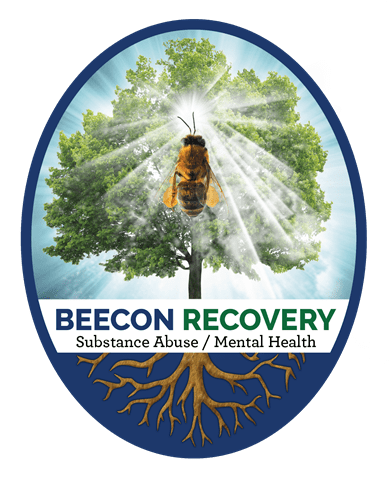The Importance of Setting Therapy Goals
Setting therapy goals is a crucial aspect of the therapeutic process. It provides direction, purpose, and a clear path for both the therapist and the client. By establishing specific goals, individuals can track their progress and stay motivated throughout their journey.
Transforming Yearnings into Goals
Transforming powerful yearnings into specific, tangible goals can significantly enhance the effectiveness of therapy. According to OpenCounseling, setting measurable goals prevents individuals from feeling stuck or uncertain about their progress. It is essential to identify broad motives, hopes, and dreams at the beginning of therapy to kickstart the process of change, growth, and healing. However, these deep feelings need to be transformed into more specific goals to make therapy more effective.
For example, a client struggling with anxiety might have a yearning to feel more at ease in social situations. This yearning can be transformed into a specific goal, such as reducing the frequency of panic attacks. By setting this goal, the client and therapist can work together to develop targeted strategies like relaxation techniques or cognitive reframing.
Focusing on Specific Themes
Focusing on specific themes in therapy helps to eliminate ambiguity and keep sessions intentional. Clear therapy goals help in identifying particular areas to address, making the therapeutic process more structured and goal-oriented. For instance, a client aiming to improve communication skills can set a goal to practice active listening or assertiveness in daily interactions. This allows for targeted interventions and measurable progress.
According to Positive Psychology, having defined goals acts as benchmarks for evaluating growth. Without these goals, it can be challenging to track improvement in therapy. Goals provide a clear framework for assessing progress and making necessary adjustments to the therapeutic approach.
Moreover, having a clear objective in therapy creates purpose and drives motivation. Therapists can help clients acknowledge their therapeutic achievements as a way to encourage and motivate them throughout the process. Celebrating small victories along the way can boost confidence and reinforce the importance of continuing the therapeutic journey.
For more information on how therapy goals can support long-term recovery, visit our article on how general outpatient (opt) supports long-term recovery.
By setting specific and measurable goals, individuals can make the most out of their therapy sessions and maintain progress between outpatient sessions. For additional strategies on maintaining progress, check out our article on how to maintain progress between outpatient sessions.
Strategies for Effective Therapy Goals
Setting effective therapy goals is essential for maintaining progress between outpatient sessions. By making goals concrete and measurable, and creating action plans with therapists, individuals can track their progress and stay motivated.
Making Goals Concrete and Measurable
To ensure therapy goals are effective, they need to be concrete and measurable. This approach prevents individuals from feeling stuck or unsure if their therapy is working. By transforming powerful yearnings into specific goals, individuals can track their progress effectively (OpenCounseling).
One effective method for setting therapy goals is the SMART criteria:
- Specific: Clearly define what you want to achieve.
- Measurable: Determine how you will measure progress.
- Achievable: Set realistic goals that are attainable.
- Relevant: Ensure the goals are meaningful and relevant to your needs.
- Time-bound: Set a timeframe for achieving the goals.
For example, instead of setting a vague goal like “reduce anxiety,” a SMART goal would be “reduce the number of panic attacks from five per week to two per week within three months.”
Creating Action Plans with Therapists
Creating an action plan with the help of a therapist is crucial for tracking and achieving therapy goals. A treatment plan typically includes major goals, smaller objectives to track progress, and the methods to facilitate change (OpenCounseling).
An effective action plan might include:
- Major Goals: Broad, overarching goals that provide direction.
- Smaller Objectives: Specific, measurable steps that lead to the major goals.
- Methods: Techniques and strategies to achieve the objectives.
For instance, a client struggling with anxiety might have the following action plan:
| Major Goal | Smaller Objectives | Methods |
|---|---|---|
| Reduce Anxiety | Reduce panic attacks from five to two per week | Practice relaxation techniques daily |
| Improve sleep quality | Establish a bedtime routine | |
| Increase social interactions | Attend a support group weekly |
By sharing goals with the therapist and developing a formal therapy plan, individuals can enhance the therapy process and stay focused on their path to healing and growth (Positive Psychology).
For more information on how to maintain progress between outpatient sessions, visit our articles on what to expect during each phase of your treatment journey and how general outpatient (opt) supports long-term recovery.
Maintaining Progress Between Sessions
Maintaining progress between outpatient sessions is crucial for long-term recovery and mental health stability. Here, we discuss two key strategies: applying skills learned in therapy and building a support system.
Applying Skills Learned in Therapy
Applying the skills learned during therapy sessions is essential for maintaining progress. These skills are designed to help manage triggers, cope with stress, and navigate daily challenges. Here are some ways to effectively apply these skills:
- Mindfulness and Relaxation Techniques: Practice mindfulness exercises and relaxation techniques to stay grounded and reduce anxiety.
- Cognitive Behavioral Strategies: Use cognitive behavioral strategies to challenge negative thoughts and replace them with positive ones.
- Problem-Solving Skills: Implement problem-solving skills to address issues as they arise, rather than letting them escalate.
Developing a safety plan with your therapist can provide resources and coping strategies to handle mental health crises that may occur between sessions (SonderMind). This plan ensures immediate support is available when needed.
Building a Support System
Having a robust support system is vital for emotional and practical support during difficult times. This system can include trusted individuals like therapists, family, friends, colleagues, or support groups (SonderMind). Here are some ways to build and maintain a support system:
- Identify Trusted Individuals: Identify people who can provide emotional support and practical assistance.
- Join Support Groups: Participate in support groups to connect with others who understand your experiences.
- Communicate Regularly: Maintain regular communication with your support network to share progress and seek advice.
To maintain progress between outpatient sessions, individuals need to ensure a supportive home environment free of triggers, have a strong social support system, exercise discipline to implement treatment strategies at home, arrange for transportation to attend recovery activities, and manage responsibilities such as work hours and child support (Cumberland Heights).
For more information on how to navigate multiple levels of care, visit our article on using case management to navigate multiple levels of care.
By applying therapy skills and building a strong support system, individuals can effectively maintain their progress between outpatient sessions and work towards long-term recovery and mental health stability. For additional tips, check out our article on tips for straightening curly hair.
Tools for Progress Maintenance
Maintaining progress between outpatient sessions is crucial for long-term recovery and mental health stability. At Beecon Recovery, we emphasize the importance of having the right tools to support our clients during this period. Two essential tools are developing a safety plan and building a toolbox of skills.
Developing a Safety Plan
A safety plan is a personalized, practical plan that includes coping strategies and resources to help manage mental health crises. Developing a safety plan with the help of a therapist can provide immediate support when needed. This plan typically includes:
- Warning Signs: Identifying early signs of a mental health crisis.
- Coping Strategies: Listing activities that can help calm and distract.
- Support Network: Contact information for friends, family, and professionals.
- Professional Resources: Hotlines and emergency services.
| Safety Plan Components | Examples |
|---|---|
| Warning Signs | Feeling overwhelmed, changes in sleep patterns |
| Coping Strategies | Deep breathing, listening to music, going for a walk |
| Support Network | Friends, family, therapist |
| Professional Resources | Crisis hotline, local emergency services |
For more information on how to develop a safety plan, visit our article on what to expect during each phase of your treatment journey.
Building a Toolbox of Skills
Building a toolbox of skills is essential for managing mental health challenges and maintaining progress between therapy sessions. This toolbox includes various techniques, support, and resources that can be utilized during difficult times. Key components of a toolbox of skills include:
- Relaxation Techniques: Methods such as deep breathing, meditation, and progressive muscle relaxation.
- Cognitive Strategies: Techniques like cognitive restructuring to challenge negative thoughts.
- Behavioral Strategies: Activities that promote positive behavior, such as exercise and hobbies.
- Support Resources: Access to support groups, online forums, and educational materials.
| Toolbox Components | Examples |
|---|---|
| Relaxation Techniques | Deep breathing, meditation |
| Cognitive Strategies | Challenging negative thoughts, positive affirmations |
| Behavioral Strategies | Exercise, engaging in hobbies |
| Support Resources | Support groups, online forums |
For additional strategies on maintaining progress, explore our article on how general outpatient (opt) supports long-term recovery.
By incorporating these tools into your daily routine, you can effectively manage your mental health and maintain the progress made during therapy sessions. At Beecon Recovery, we are committed to providing comprehensive support to help you achieve lasting recovery.
Enhancing Progress with Reflection
Reflecting on our journey is a powerful tool for maintaining progress between outpatient sessions. By taking the time to process our experiences and insights, we can reinforce the lessons learned and stay committed to our goals.
Journaling Insights
Journaling is an effective way to reflect on the insights gained during therapy sessions. By writing down our thoughts, feelings, and experiences, we can better understand our progress and identify areas that need further attention. Journaling can be done in various formats, such as traditional writing, voice notes, or bullet-point lists (Wellness Lived).
Benefits of Journaling:
- Helps internalize lessons from therapy
- Provides a record of progress
- Offers a safe space for self-expression
To make the most of journaling, we recommend setting aside a few minutes each day to write about our experiences. This practice can help us stay connected to our goals and maintain momentum between sessions.
Setting Small Achievable Goals
Setting small, achievable goals between therapy sessions can help us stay focused and motivated. These goals should be specific, measurable, and realistic, allowing us to track our progress and celebrate our achievements (Wellness Lived).
Examples of Small Achievable Goals:
- Practicing mindfulness for 5 minutes each day
- Completing a grounding exercise once a day
- Engaging in a self-care activity twice a week
By breaking down larger goals into smaller, manageable steps, we can maintain our commitment to growth and build confidence in our abilities. For more information on how to set effective therapy goals, visit our article on creating action plans with therapists.
| Goal Type | Example | Frequency |
|---|---|---|
| Mindfulness | Practice for 5 minutes | Daily |
| Grounding Exercise | Complete once | Daily |
| Self-Care Activity | Engage in activity | Twice a week |
Reflecting on our progress through journaling and setting small, achievable goals are essential strategies for maintaining progress between outpatient sessions. By incorporating these practices into our routine, we can stay focused, motivated, and committed to our journey of recovery and mental health improvement.
For additional support and resources, explore our articles on how general outpatient (opt) supports long-term recovery and using case management to navigate multiple levels of care.
Strategies for Long-Term Success
Maintaining progress between outpatient sessions is essential for long-term success in addiction recovery and mental health treatment. Here are some strategies to help you stay on track.
Practicing Therapy Skills Regularly
Practicing skills learned in therapy, such as mindfulness, grounding exercises, or cognitive restructuring, regularly is crucial for building confidence and applying these tools effectively. Consistent practice helps reinforce these skills, making them second nature when faced with challenging situations.
| Skill | Description | Frequency |
|---|---|---|
| Mindfulness | Being present in the moment | Daily |
| Grounding Exercises | Techniques to stay connected to the present | As needed |
| Cognitive Restructuring | Changing negative thought patterns | Weekly |
For more information on how to integrate these practices into your daily routine, visit our article on how general outpatient (opt) supports long-term recovery.
Prioritizing Self-Care
Prioritizing self-care, which includes nurturing physical, emotional, and mental health, strengthens one’s foundation and enables better handling of life’s challenges (Wellness Lived). Self-care practices can include:
- Physical Health: Regular exercise, balanced diet, adequate sleep
- Emotional Health: Journaling, engaging in hobbies, spending time with loved ones
- Mental Health: Meditation, therapy sessions, reading self-help books
| Self-Care Area | Activities | Frequency |
|---|---|---|
| Physical Health | Exercise, balanced diet, sleep | Daily |
| Emotional Health | Journaling, hobbies, socializing | Weekly |
| Mental Health | Meditation, therapy, reading | Daily/Weekly |
For more tips on self-care, check out our article on what to expect during each phase of your treatment journey.
By incorporating these strategies into your routine, you can maintain progress between outpatient sessions and work towards long-term success in your recovery journey. For additional resources, explore our articles on using case management to navigate multiple levels of care and transitioning from inpatient to outpatient: what you need to know.






